
Grapevine Red Blotch Virus
Blog0 Comments
/
Research Presentation submitted by Alex Clarke as part of the ASPB Conviron Scholars Program
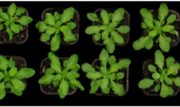
Salicylic acid, senescence, and heterosis
Blog, Plant Physiology, Plant Physiology: News and ViewsFor a number of crops agricultural yields have been boosted by the phenomenon of heterosis or hybrid vigour, where a hybrid outperforms either parent. Understanding the various mechanisms by which heterosis arises may facilitate the breeding of hybrids with increased vigour for further crop varieties…
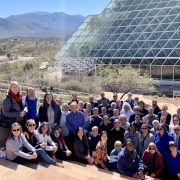
Unite, Inspire, Enable: The future of plant science
Blog, Plant Science Research NetworkAuthors: JP Dundore-Arias, Jacque Fletcher, and Brett Tyler
This article originally appeared in Phytopathology News (May 2019, Volume 53, Issue 5)
“The goal of a sustainable future, with a more nimble and innovative workforce and a highly competitive research enterprise, is in the national interest….…
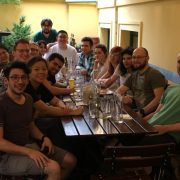
Faculty Job: Myths & Realities - an interview with Yasin Dagdas
BlogAbout you
Hi All,
If you are more of a 140-character type like me, the summary of the interview below is “There is nothing magical about being a faculty in academia. Even a very ordinary person can make it, provided that he is surrounded by great colleagues and tries hard enough.” The real question…

Plants are thirsty, too!
BlogASPB Conviron Scholars: Final Project, by Tim Burnette
Water is a central piece to humanity’s past, present, and future life. It is essential to our survival, and we are not alone in this necessity: plants need water too. With limited water, plants cannot grow and develop, and may not even survive.…

Plant Science Outreach Demonstrations
Blog
For my Conviron Scholars independent project Bryony Yates created a guide that details the instructions for two interactive plant science demonstrations that can be delivered as part of a science outreach event.
They could be presented as part of a public event or taken into schools and require…
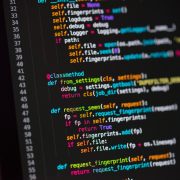
An introduction to Python for data visualization
BlogIndependent Project Created by Samantha Connolly as part of the ASPB Conviron Scholars Program
Python is an incredibly useful programming language, especially for data visualization. Here, I will (1) show you how to download an Integrated Development Environment, (2) show you the basics of loops,…

Spreading Plant Science through Twitter
BlogPost by Angel Vergara Cruces
For my ASPB Conviron Scholars independent project, I wanted to use Twitter to spread plant sciences. I was hoping the way Twitter works could allow me to reach a wider audience. I especially wanted to introduce plant sciences to undergraduate students in the life sciences,…
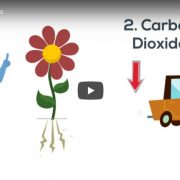
Food for Flowers
BlogASPB Conviron Scholars Independent Project by Mallory Cullen
For my independent project, I wanted to make a plant science lesson for young elementary school children. I made a video that provides a basic overview of photosynthesis as well as two experiments that can be conducted to illustrate photosynthesis.…

